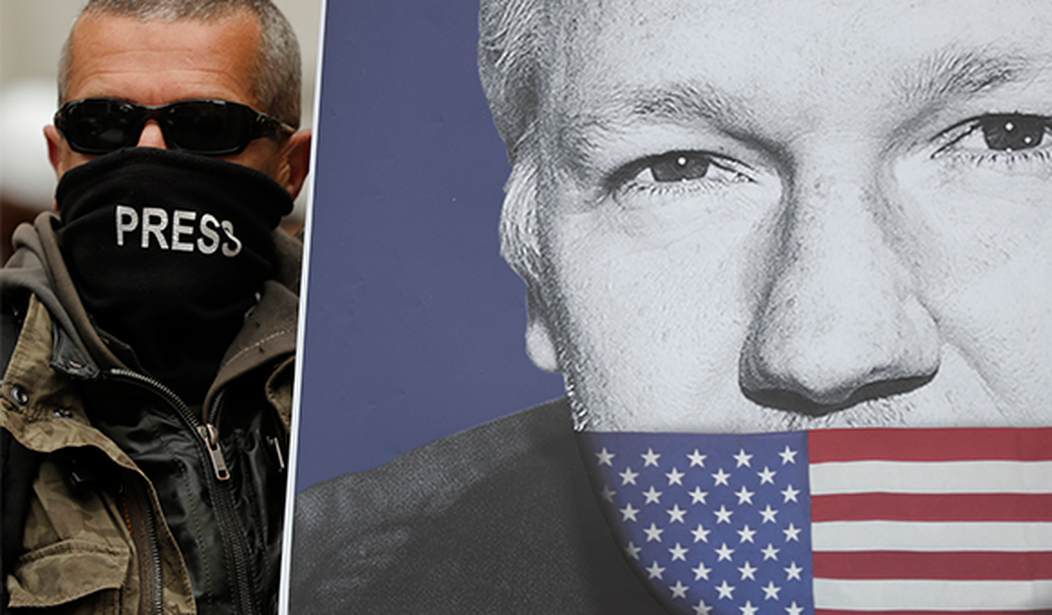Julian Assange, the founder of WikiLeaks, is facing imminent extradition to the United States after his latest legal appeal was rejected. This development has sparked concerns among his family, legal team, and advocates closely following his extended legal battle. Gabriel Shipton, Assange’s brother, said the loss of his appeal was a serious development, “that leaves him dangerously close now to extradition.”
UK high court judge Justice Jonathan Swift rejected all eight grounds of Assange’s appeal against the US’s extradition order, in a three-page judgment that was handed down on Tuesday.
Assange’s Next Appeal
Assange’s lawyers have announced their intention to appeal to the same court. Assange’s wife, Stella Assange, stated that her husband plans to submit a renewed application for appeal to the High Court in the next week. Stella Assange said:
And we remain optimistic that we will prevail and that Julian will not be extradited to the United States where he faces charges that could result in him spending the rest of his life in a maximum security prison for publishing true information that revealed war crimes committed by the U.S. government.
Assange currently faces 18 charges for WikiLeaks’ publication of classified documents, sourced mainly from the former U.S. Army intelligence analyst Chelsea Manning. Manning’s prison sentence was commuted by President Barack Obama in 2017. If convicted, Assange could face a combined sentence of up to 175 years in prison.
He has been detained for over four years in Belmarsh prison, located in London, with deteriorating health. Assange was kept in the Ecuadorian Embassy in London for seven years, starting in 2012 as an asylum seeker before UK police entered and arrested him in April 2019 over a “failure to surrender” warrant issued in 2012. In May 2019, Assange was sentenced to 50 weeks in jail for a break of bail conditions.
Shipton said:
These times are always very hard for Julian in the prison. He’s obviously focused on this next appeal … but he’s not doing well. This saga’s been going on 13 years and it is taking its toll on his body and on his mind. But he still has a fighting spirit, we’re just hoping he makes it through this.
Argument Against Extradition
The appeal argued that the extradition order, signed by former UK Home Secretary Priti Patel in June of last year, was erroneous. It claimed that the request violated the US-UK extradition treaty, which prohibits extradition for political offenses. Assange’s legal team argues that the U.S.’s pursuit of him is politically motivated.
Assange’s appeal also argued that he is being prosecuted for protected speech and that the extradition request itself constitutes an abuse of the legal process. His legal team also accused the U.S. government of consistently misrepresenting crucial facts in the case when presenting them to the British courts.
Read More:
Tucker Carlson: Mitch McConnell Coerced Trump Into Not Pardoning Julian Assange
Court Loss Moves Julian Assange One Step Closer to Extradition to the United States
‘Publishing Is Not a Crime’
Assange is the first publisher in history to be charged with the Espionage Act, which dates back to WWI. This had caused journalists around the world to push back, in defense of press freedoms. Last year, the publishers and editors of five organizations wrote an open letter calling for the U.S. government to drop their charges against Assange. The New York Times, The Guardian, Le Monde, DER SPIEGEL, and El Pais were signatories to the letter.
The letter said:
This indictment sets a dangerous precedent, and threatens to undermine America’s First Amendment and the freedom of the press. Holding governments accountable is part of the core mission of a free press in a democracy. Obtaining and disclosing sensitive information when necessary in the public interest is a core part of the daily work of journalists. If that work is criminalised, our public discourse and our democracies are made significantly weaker.
Twelve years after the publication of “Cable gate”, it is time for the U.S. government to end its prosecution of Julian Assange for publishing secrets.
The letter is signed:
Publishing is not a crime.
Remaining Legal Options
With the rejection of the appeal, only one option remains within the UK courts. The defense has five business days to submit a 20-page appeal to a panel of two judges, who will convene a public hearing. There are no further appeal avenues at the domestic level. Assange could still challenge the extradition at the European Court of Human Rights, which confirmed receiving an application from him in December.
Assange’s brother criticized the Australian government’s efforts, considering their public statements advocating for Assange’s release to be hollow words. He called on the government to take more action in fighting the extradition. Shipton said:
We’ve been hearing this “enough is enough” for over a year, it rings hollow now, these strange platitudes from the government about “making representations.” What has that achieved? Nothing has changed, and the Australian government can certainly be doing more.
Shipton’s comments referenced Australian Prime Minister Anthony Albanese, a vocal “free Assange” advocate. Last month, in an attempt to increase diplomatic pressure on the U.S. to drop their charges, the Prime Minister said:
I just say that enough is enough. There is nothing to be served by his ongoing incarceration. I know it’s frustrating, I share the frustration. I can’t do more than make very clear what my position is and the US administration is certainly very aware of what the Australian government’s position is.
The rejection of Assange’s extradition appeal raises concerns about his fate and the implications for journalism and press freedom. The international community awaits the next developments in this high-profile case, while a new application for appeal is prepared by Assange and his lawyers.













Join the conversation as a VIP Member